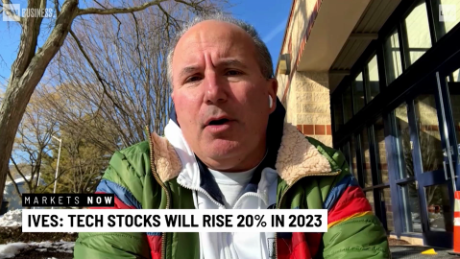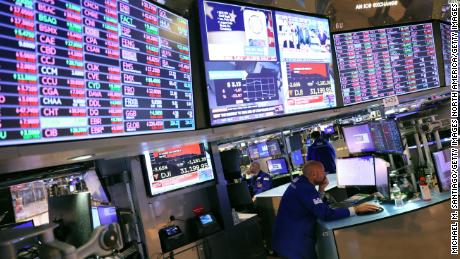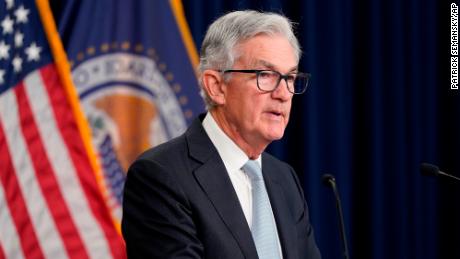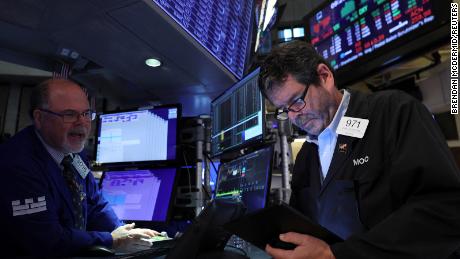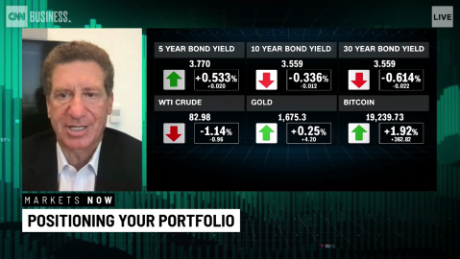New York (CNN Business)The American economy is already absorbing a body blow from the deepening US-China trade war. A real war could be more than the decade-long economic expansion can handle.
Investors would be wise to closely monitor the relationship between the United States and Iran, where tensions have soared after Iran suspended parts of the nuclear deal that briefly brought an end to its economic and diplomatic isolation.
A clash in the Middle East, while unlikely, would send oil prices surging. That would deal a major blow to consumer spending, the engine of the American economy.
History shows that oil price spikes ŌĆö not financial panics ŌĆö are the leading cause of recessions in modern America.
"Oil shocks have killed more US economic expansions over the last 40 years than any other single cause," Nicholas Colas, co-founder of DataTrek Research, wrote in a note to clients.
Besides long lines at gas stations, the Saudi oil embargo of 1973-1974 helped set off a jump in oil prices that crippled the economy. The Iranian Revolution of 1979 also led to a recession in the United States.
Similarly, the US economy slipped into a downturn after Iraq invaded Kuwait in 1990 and again following the US overthrow of Iraqi dictator Saddam Hussein in 2003.
"Historically, we've seen a spike in oil prices precede or coincide with a recession," said Mike Reynolds, investment strategy officer at Glenmede.
Colas noted that the last three examples occurred "late in a protracted US economic cycle" ŌĆö much like today's environment. America's economic expansion, now nine years old, is on track to become the longest in history in July.
$140 oil in 2008
The Great Recession was caused by an epic housing bubble and overleverage on Wall Street. But the fact that US oil prices skyrocketed above $140 a barrel in summer 2008 contributed to the depth of the downturn. Shell-shocked American drivers struggled to pay $4-a-gallon gas prices.
"That was the straw that really broke the camel's back for consumer spending," said Troy Gayeski, co-chief investment officer at SkyBridge Capital.
Oil shocks are scary because they simultaneously deal a blow to household spending and consumer confidence.
And higher oil prices can spread to other parts of the economy, driving up costs on everything from airfare to trucking. That can put pressure on profit margins as well as the Federal Reserve, which is charged with ensuring inflation doesn't get out of hand.
The 2008 oil shock led the European Central Bank to raise interest rates that July ŌĆö just months before what would morph into the scariest financial crisis since the Great Depression.
"They hiked rates at the worst possible time. That was a bad call," said Gayeski. "It would be highly doubtful that the Fed would overreact."
Risks are rising in the Middle East
The recovery from the Great Recession has proven resilient, overcoming countless scares such as Brexit, the slowdown in the Chinese economy and the European debt crisis. Now, the economy is under pressure from the US-China trade war.
At the same time, tensions have soared in the Middle East, punctuated by allegations from Saudi Arabia that oil tankers were sabotaged, and oil facilities were attacked by armed drones.
"The risks of a Middle East military confrontation are rising sharply," Helima Croft, global head of commodity strategy at RBC Capital Markets, wrote in a note to clients on Wednesday. "There is growing concern that the region's long simmering cold war may be poised to become a hot one."
Shale to the rescue?
US oil prices have surged nearly 50% since collapsing to $42.53 a barrel late last year. However, most of those gains occurred before the standoff over Iran. Prices have held steady in recent days as concerns about the Middle East were offset by the trade war.
A conflict in the Middle East may not have as dramatic impact on prices as in the past. That's because today the United States is the world's leading oil producer, thanks to skyrocketing shale output in West Texas.
"The US is much more energy independent than in the past," said Glenmede's Reynolds.
Still, it's a global market and shale alone can't make up for production losses in Venezuela and Iran, let alone a potential military conflict in the Middle East.
SkyBridge's Gayeski said he believes the US economy could withstand Brent oil prices climbing above $100 to $110 a barrel.
"That's not the end of the world. We don't see that as recession-causing," he said.
Above that level, though, would be much more problematic.


